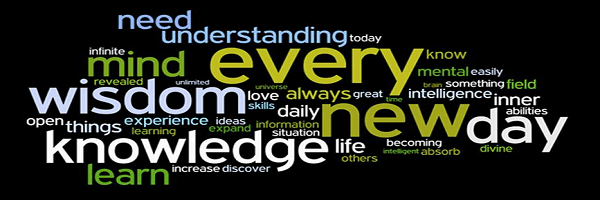External & Internal Internet Safety Tools

- By Anne Collier
- Misc
- December 31, 2013
As we welcome in a new year, some thoughts on the promise and protective properties of compassion and resilience for our children (and all of us)…

In the US and probably many other countries, the Internet safety discussion has focused largely on external safeguards: filtering, monitoring and other parental control tools, household and school rules, state and federal laws. Those can be helpful in the quest to increase children’s wellbeing online and offline, especially if caregivers and rulemakers are applying them thoughtfully and recalibrating for age-appropriateness the way parents typically do. But external protections aren’t the only kind. They’re not the only kind of protection kids need at a time when connectivity is as mobile as our kids are, a time when we seem to have less control over our kids’ connectivity all the time and when – even when we feel we do – they have plenty of workarounds.
The Internal Safeguards
So more of our collective focus needs to be on *internal* safeguards – the kind that improve with age and are with our children wherever they go, digitally and physically, the rest of their lives: resilience, empathy, respect for self and others, their moral compass (or inner guidance system) and the literacies of this networked media culture, digital, media and social literacy (see the second half of this).
The good news is that, even though we haven’t seen them as key to their online safety and even though the public discussion about it has focused almost entirely on external safeguards, these internal ones develop pretty organically anyway, as kids grow up, absorb their families’ values and work out social norms with their peers.
But think how much more powerful – and empowering – these internal “safety tools” will be when, as a society, we help children develop them in a conscious, concerted way that’s respectful of their individual and collective development of them. Social literacy, with all the other benefits that come with it (including better academic performance), is an academic standard in only one state, Illinois, and it’s generally taught only as an in-person skill. Rarely is it consciously taught as a skill needed in digital environments, while what we find is that kids need these skills and literacies more than ever in all the environments of this ultra-connected world of ours, with images and information constantly flowing through their everyday lives – a world in which connectivity is increasingly key to economic as well as social success.
Growing Interest In Empathy, Compassion ...
There are encouraging signs of real momentum in that direction, though. Besides the growing interest in social-emotional learning and school climate in education circles, there’s focus on this in the Internet industry, academia and philanthropy. This month I attended back-to-back conferences on compassion: Facebook’s fourth Compassion Research Day and a Compassion & Technology conference at Stanford University’s Center for Compassion and Altruism Research and Education (CCARE).
Both were about perspective-gathering, growing consensus and spreading the word – de-silo-ing a discussion that’s necessarily cross-disciplinary, along the lines of the gathering that launched the Born This Way Foundation at Harvard’s Berkman Center. I like the way Keith Neilson of HopeLab(.org), a nonprofit group that designs games “to improve human health and well-being,” described the Stanford gathering:
“Drawn from a rapidly emerging field [the study of empathy], presenters from around the world convened to share their perspectives on the power of technology, in particular, games, Web apps, smartphones and tablets, to promote resilience and compassionate action in the world.” He picked some great takeaways from the conference, showing what science says about the benefits of compassion (look under “Snapshot of Three CCARE Presenters” in his blog post).
How Resilience Helps Us
HopeLab itself is working on an app that increases resilience in its user – no small task, I’d say, but an important one, given that, for resilient people…
- Online (or offline) risk doesn’t become harm
- Safety is built in and grows when adversity happens
- Meanness may hurt but doesn’t scar
- Bullying signals a need for compassion (for the bully too) and
- Resiliency brings freedom – to help others as well as bounce back.
In other words, resilience is protective. It allows for safe risk-assessment. So how is it cultivated?
“Scientific research indicates that there are three psychological experiences we can cultivate to bolster resilience … a sense of purpose, a sense of connection, and a sense of control [see this about the need to restore a sense of control in young people targeted by bullying]. These experiences not only improve our psychological wellbeing; they can also improve our physical health,” said Janxin Leu, HopeLab’s director of product innovation, in her presentation at the Stanford conference.
Cultivating Purpose, Connection and Control
Dr. Leu went on to define purpose as “a far-reaching steady goal, something personally meaningful that is self-transcending (reaches out into the world); to define connection as “authentic relationship with others, a sense of belonging, the opposite of loneliness”; and to define control as “our belief in our power to affect our destinies, the engine of motivation.” Another word for “control” that I’ve written a lot about is “agency.” It’s key to play, which – more than work – navigates rapid change and complexity, the conditions of today’s world and our kids’ futures.
So do you see how vital it is to help our children develop these internal safeguards – resilience, empathy, ethics, self-respect, and the blended literacy of participatory media and this networked world? They are key to safety as well as health, happiness and success.
Originally posted via Net Family News December 30th, 2013
![]()
Content provided by Anne Collier. Editor of NetFamilyNews.org and founder and executive director of its parent organization, Net Family News, Inc. More on Anne Collier can be found here.
Related links
- A videogame aimed at teaching social-emotional literacy to 6-to-12-year-olds is about to launch too. It has been developed by Trip Hawkins, founder of Electronic Arts and EA Sports, and my ConnectSafely co-director Larry Magid just posted an audio interview with Hawkins at CNET.
- Defining social-emotional learning
- “When kids are skilled navigators of our networked world”
- “Challenging Internet safety as a subject to be taught”
- “Study on long neglected factor in Net safety: Resilience” by EU Kids Online
- “Neutralize the ‘negativity bias’ against kids’ Net use”
- “Understanding cyberbullying from the inside out” (January 2011)